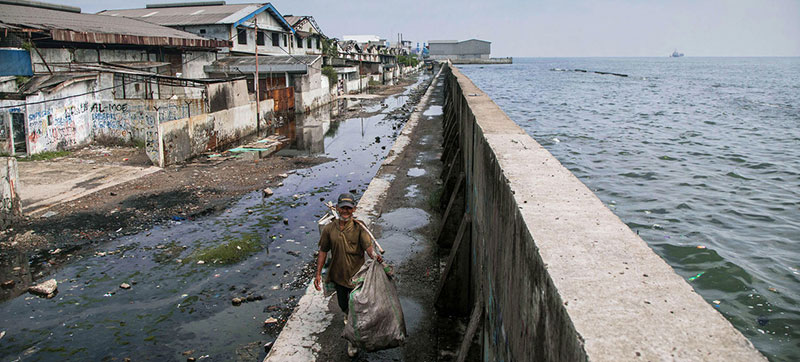 UN Climate Change
UN Climate Change
‘Dramatic’ boost needed in climate adaptation: UN environment agency
Although policies and planning for climate change adaptation are increasing, financing and implementation lag behind, the UN Environment Programme (UNEP) said in a new report launched on Thursday.
The Adaptation Gap Report 2021: The Gathering Storm calls for ramping up funding and action to address the growing impacts of climate change.
“As the world looks to step up efforts to cut greenhouse gas emissions – efforts that are still not anywhere strong enough – it must also dramatically up its game to adapt to climate change,” said Inger Andersen, the UNEP Executive Director.
‘Step change’ in ambition
Even if countries were to “turn the tap” off on emissions today, she added, climate impacts would remain, for decades to come.
“We need a step change in adaptation ambition for funding and implementation to significantly reduce damages and losses from climate change,” said Ms. Andersen. “And we need it now.”
The UNEP report was launched at the COP26 UN climate change conference in Glasgow, Scotland, where world leaders are meeting to make a collective push to limit global warming, in line with the Paris Agreement.
Countries are currently on track to witnessing a 2.7 degree rise by the end of the century. Even if warming is kept to 1.5 degrees or 2 degrees, as outlined in the 2015 accord, climate risks remain.
Close the gap
UNEP said greater ambition towards adaptation, particularly for financing and implementation, is also critical to keep existing gaps from widening.
The report found the costs of adaption are likely to be at the higher ended of an estimated $140 billion to $300 billion a year by the end of this decade, and $280 billion to $500 billion annually by 2050,
Furthermore, the cost in developing countries is estimated to be between five to 10 times greater than current public adaptation finance flows. In 2019, these nations received some $76.9 billion in climate finance for mitigation and adaptation planning and implementation.
The COVID-19 opportunity
The report also revealed how countries are missing the opportunity to use fiscal recovery from the COVID-19 pandemic to prioritize “green” economic growth that also supports adapting to climate impacts such as droughts, wildfires and floods.
Just a small portion of the $16.7 trillion in stimulus funding globally has gone to adaptation.
As of June, fewer than one-third of 66 countries studied, had explicitly funded COVID-19 measures to address climate change. Future government spending could also be hampered by the heightened cost of debt servicing, combined with decreased public revenues, particularly in developing countries.
Progress is being made
The report’s authors also pointed to areas of progress. For example, nearly 80 per cent of countries have adopted at least one national-level adaptation planning instrument, such as a plan, strategy, policy or law, representing a seven per cent increase since 2020.
Additionally, the top 10 donors funded more than 2,600 projects with a principal focus on adaptation, during the period between 2010 and 2019, indicating efforts are growing.
That aside, UNEP said countries need to step up public adaptation finance through direct investment and by overcoming barriers to private sector involvement.
They must also consider “higher end climate scenarios”, as detailed in the most recent assessment by UN scientific body, the Intergovernmental Panel on Climate Change (IPCC).
Additionally, governments should use post-pandemic fiscal recovery to prioritize interventions that will bring about both economic growth and climate change resilience.
Authorities should also establish “integrated risk management approaches”, as well as flexible disaster finance frameworks, the report added, while richer nations should help developing countries “to free up fiscal space”.
Support Our Journalism
We cannot do without you.. your contribution supports unbiased journalism
IBNS is not driven by any ism- not wokeism, not racism, not skewed secularism, not hyper right-wing or left liberal ideals, nor by any hardline religious beliefs or hyper nationalism. We want to serve you good old objective news, as they are. We do not judge or preach. We let people decide for themselves. We only try to present factual and well-sourced news.







